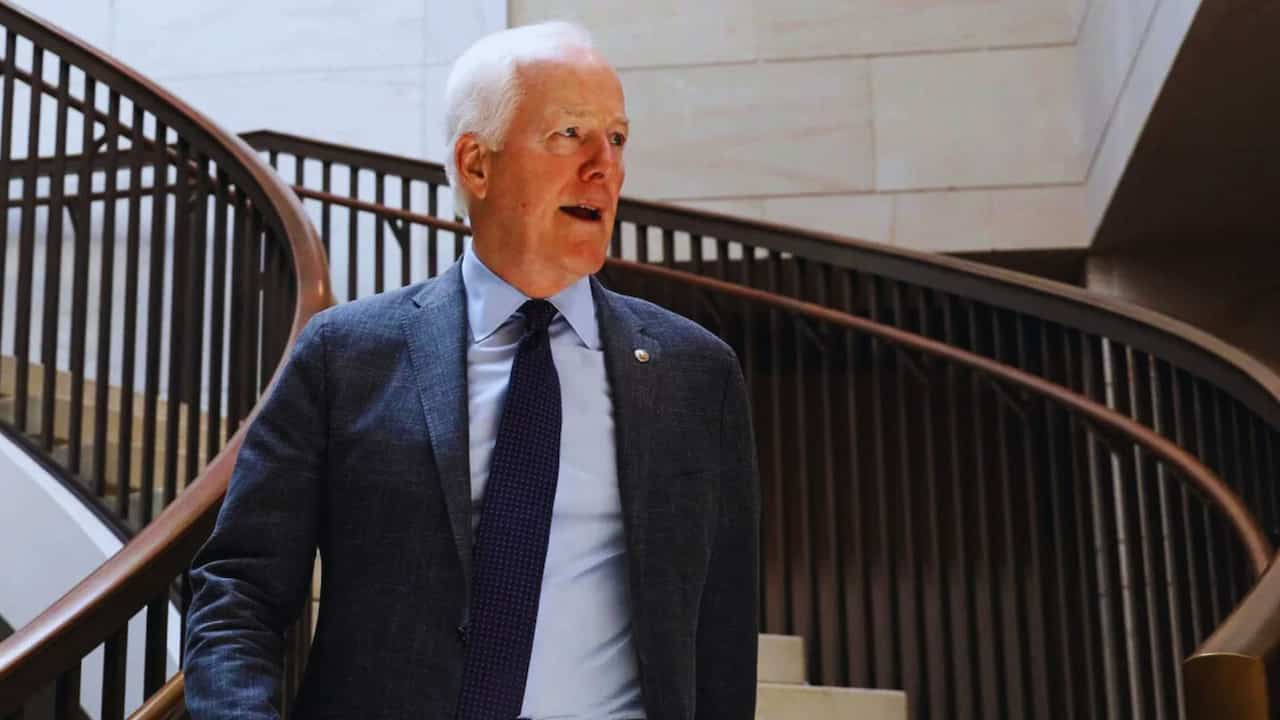Political Storm Brews: Gaetz’s AG Nomination Faces Senate Scrutiny Amid Ethics Concerns
As a veteran political correspondent watching events unfold on Capitol Hill, the nomination of Matt Gaetz as attorney general has ignited a fierce debate that threatens to test the incoming Senate Republican majority’s resolve.
Senate Republicans, led by incoming Majority Leader John Thune, find themselves walking a political tightrope. With only a 53-seat majority projected, they can afford just three defections on this controversial nomination. The stakes couldn’t be higher for both the Trump transition team and Senate leadership.
The controversy centers on a critical House Ethics Committee report that was set for release just as Gaetz resigned from Congress. Senator John Cornyn, a key Judiciary Committee member, didn’t mince words: “I absolutely want to see the House Ethics Committee’s findings,” he declared, setting a tone that other Republicans may follow.
The timing has raised eyebrows across Washington. The former Florida congressman stepped down immediately after Trump announced his nomination, a move that effectively halted the ethics probe. This hasn’t gone unnoticed by Senate Democrats, with Judiciary Chairman Dick Durbin pointing out that “the timing of the resignation and flight with President-elect Donald Trump suggests that he believes this report is not friendly and favorable.”
Some of Gaetz’s former House colleagues have been surprisingly candid about his departure. Representative Max Miller (R-OH) revealed that many House Republicans were “giddy” about Gaetz leaving, adding that Trump likely chose him to reward loyalty rather than experience.
The confirmation battle ahead looks increasingly complex:
- Senate Process: The Judiciary Committee will lead the vetting process, with Republicans holding key votes.
- Ethics Report: Questions remain about whether the House findings will become public
- GOP Split: Several Republican senators are keeping their options open, neither committing support nor opposition.
- Recess Appointments: Trump’s team has floated this possibility, but it faces resistance from key Republicans.
Adding another layer of complexity is Trump’s suggestion that he might use recess appointments to bypass Senate confirmation entirely. This strategy has met pushback from his own party, with Senator James Lankford arguing it “shows the Senate is not doing their work.”
The nomination has created strange alliances, with Democrats and some Republicans jointly calling for transparency regarding the ethics investigation. Senator Richard Blumenthal stated firmly, “Matt Gaetz has chosen to resign from the House, but he can’t choose to conceal that information.”
Meanwhile, Senate Republican leaders are trying to maintain a careful balance. Senator Lindsey Graham emphasized the traditional process: “Elections have consequences… We’ll see when Matt appears before the committee and faces tough questions.
For Gaetz, who once proudly declared himself “the most investigated man in the United States Congress,” the confirmation hearings promise to be challenging. The Justice Department previously investigated allegations of sexual misconduct but filed no charges. However, the House Ethics Committee’s broader inquiry covered additional areas, including campaign fund use and House floor conduct.
As Washington braces for what promises to be contentious confirmation hearings, the situation highlights the delicate balance between presidential prerogative and Senate oversight. With Republicans holding a slim majority and several senators expressing reservations, Gaetz’s path to confirmation appears increasingly uncertain.
The coming weeks will test not only Gaetz’s ability to withstand scrutiny but also the Republican Party’s unity as it navigates this politically charged nomination. For President-elect Trump and Senate leadership, managing this confirmation process while maintaining party cohesion may prove to be their first major challenge of 2025.
